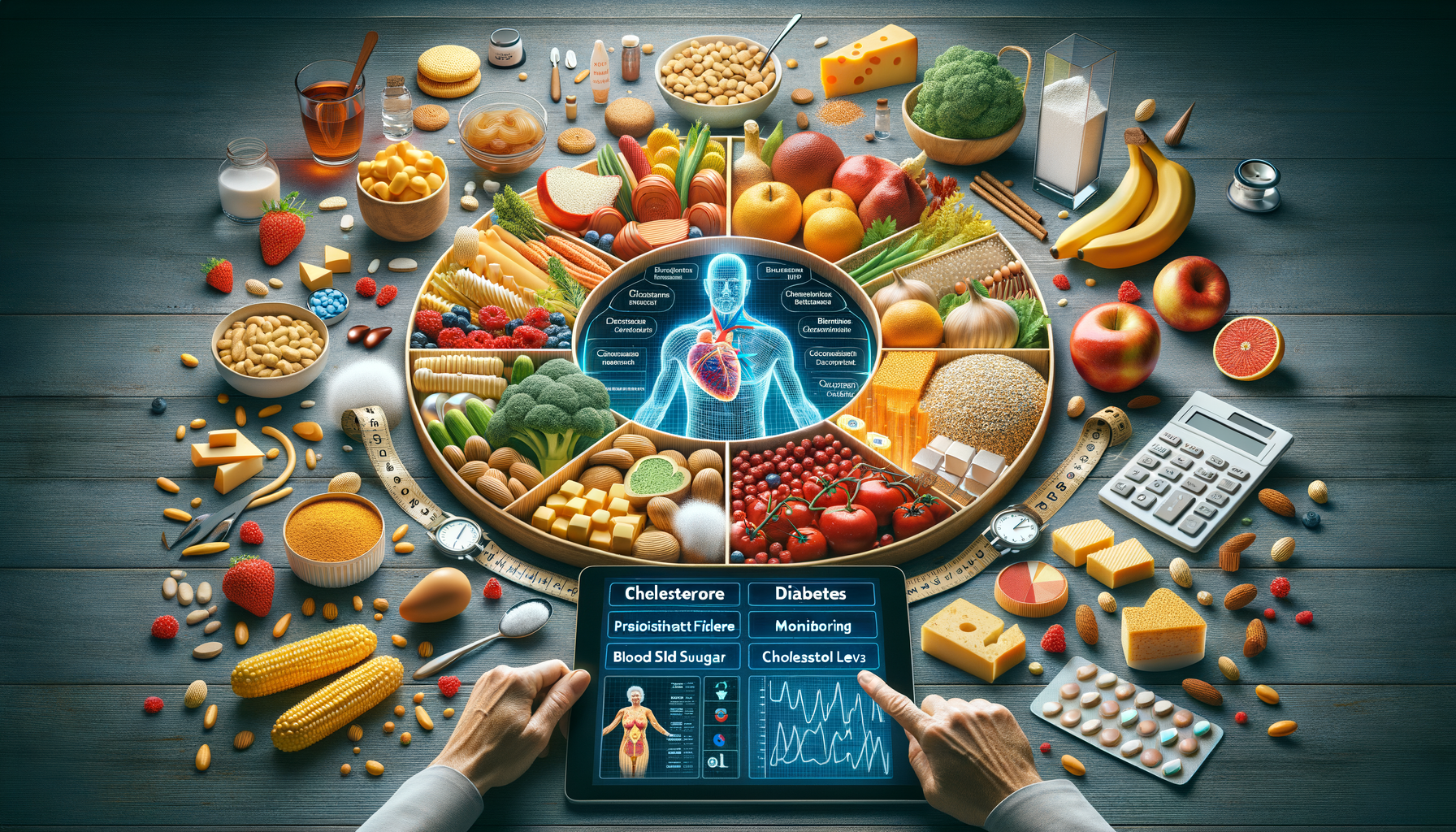What To Know About Diets To Lower Cholesterol For Seniors With Diabetes
Are you struggling to find the right diet to manage both cholesterol and diabetes as you get older? Navigating these health concerns can be challenging, especially when dietary choices impact both conditions. In this post, we’ll explore key diet tips that help seniors lower cholesterol while effectively managing diabetes.

Understanding the Link Between Cholesterol, Diabetes, and Age
As we age, the body’s metabolism and physiological functions undergo significant changes, impacting how we process nutrients and manage health conditions like cholesterol and diabetes. Cholesterol, a waxy substance found in the blood, is essential for building cells, but excessive levels can lead to health complications, such as heart disease. Diabetes, a chronic condition characterized by high blood sugar levels, can exacerbate cholesterol issues, increasing the risk of cardiovascular problems.
Research indicates that aging can influence both cholesterol and diabetes management. With age, the body’s ability to metabolize fats and sugars diminishes, often resulting in higher cholesterol and glucose levels. This is particularly concerning for seniors with diabetes, as the combination of high cholesterol and elevated blood sugar can significantly increase the risk of atherosclerosis—a condition where arteries become clogged and hardened.
Understanding this link is crucial for seniors aiming to manage their health effectively. By recognizing the interconnectedness of these conditions, individuals can take proactive steps to address them through lifestyle changes, including diet and exercise. Regular check-ups and monitoring of cholesterol and blood sugar levels are also essential to prevent complications and maintain overall health.
Prioritizing Fiber and Healthy Fats in Your Diet
Diet plays a pivotal role in managing cholesterol and diabetes, especially for seniors. Prioritizing fiber and healthy fats can significantly impact health outcomes. Fiber, found in fruits, vegetables, and whole grains, helps lower cholesterol levels by binding to cholesterol particles in the digestive system and removing them from the body. Additionally, fiber aids in regulating blood sugar levels by slowing the absorption of sugar, which is beneficial for individuals with diabetes.
Healthy fats, such as those found in avocados, nuts, and olive oil, are essential for maintaining heart health. Unlike saturated and trans fats, which can raise cholesterol levels, healthy fats support good cholesterol (HDL) and reduce bad cholesterol (LDL). Incorporating these fats into meals can help seniors manage their cholesterol levels while providing essential nutrients for overall well-being.
When planning meals, consider including a variety of fiber-rich foods and healthy fats. For instance, a salad with mixed greens, topped with avocado and a sprinkle of nuts, can be a delicious and nutritious choice. Additionally, using olive oil as a dressing or cooking medium can add flavor and health benefits. By making these dietary adjustments, seniors can work towards better cholesterol and diabetes management, promoting a healthier lifestyle.
Monitoring Blood Sugar and Cholesterol Levels While Dieting
Regular monitoring of blood sugar and cholesterol levels is vital for seniors managing diabetes and cholesterol through diet. Keeping track of these metrics allows individuals to make informed decisions about their dietary choices and lifestyle habits. It can also provide insights into how specific foods affect their health, enabling more personalized diet plans.
There are several ways to monitor these levels effectively. Home testing kits for blood sugar are readily available and can be used to check glucose levels daily. For cholesterol, regular visits to a healthcare provider for blood tests are recommended. These tests will measure total cholesterol, LDL, HDL, and triglycerides, providing a comprehensive view of heart health.
In addition to regular monitoring, keeping a food diary can be beneficial. Recording meals and snacks helps identify patterns and triggers that may affect blood sugar and cholesterol levels. This practice can also help in setting realistic dietary goals and tracking progress over time. By staying vigilant and informed, seniors can better manage their cholesterol and diabetes, leading to improved health outcomes and quality of life.